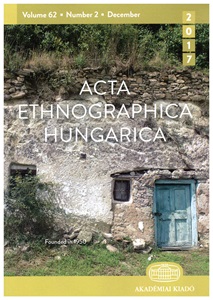From Hernádszentandrás to BioSzentandrás - An Example of a Sustainable Bio-farm in Hungary
From Hernádszentandrás to BioSzentandrás - An Example of a Sustainable Bio-farm in Hungary
Author(s): Anikó BátiSubject(s): Agriculture, Health and medicine and law, Human Ecology, Rural and urban sociology, Economic development
Published by: Akadémiai Kiadó
Keywords: social agricultural project; rural community; local governance; sustainable rural development; food culture;
Summary/Abstract: Sustainable agriculture is the re-production of resources, which has a positive impact on the natural environment, assists in the survival of rural communities, and improves the quality of life through food production. The job opportunities can also positively influence the population retention of the communities. The study seeks to answer why a farming community in a traditionally agricultural area may have to re-learn the foundations of crop production on a social agricultural farm created by the local government. In this case study based on my fieldwork, I present the operation of an organic farm established with the help of external resources and specialists as a sustainable agricultural model, its effect on community life, and briefly referring to food culture and lifestyle changes that occurred in Hungary in the second half of the 20th century.
Journal: Acta Ethnographica Hungarica
- Issue Year: 62/2017
- Issue No: 2
- Page Range: 277-295
- Page Count: 19
- Language: English
- Content File-PDF

